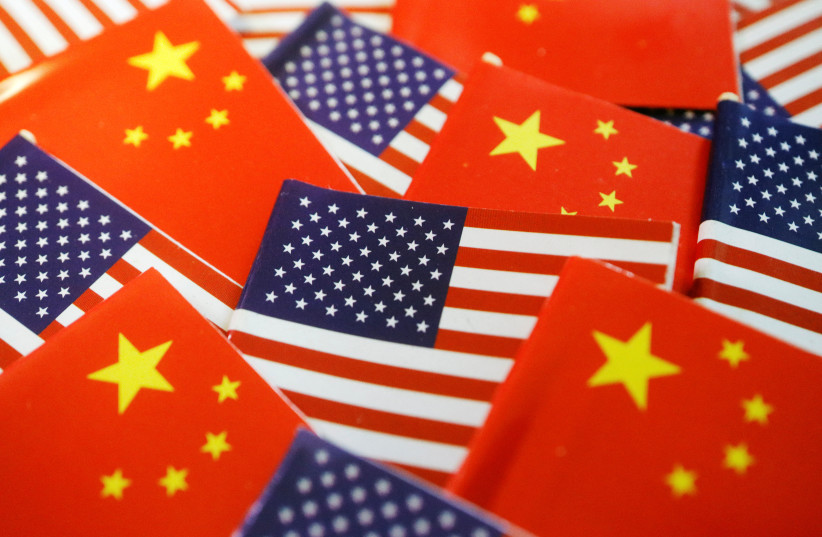With Donald Trump’s 2024 election win, his administration’s anticipated AI policies are poised to significantly reshape the US AI landscape. Central to this are his goals to maintain US leadership in this field, primarily through countering Chinese advancements. For Israel, a close US ally and an AI innovation leader, these shifts present opportunities and challenges in areas like national security, technology collaboration, and regulatory alignment.
<br><strong>What to look for</strong>
Donald Trump’s agenda emphasizes US dominance in the global AI race, particularly against China. The president-elect is expected to repeal Biden’s AI Executive Order, as reflected in the 2024 Republican Party platform: “We will repeal Joe Biden’s dangerous Executive Order that hinders AI Innovation and imposes Radical Leftwing ideas on the development of this technology.”
In general, his supporters and allies are divided on governance, with figures like Elon Musk supporting safety measures and others advocating minimal oversight to foster innovation. Key policies include strengthening export controls, expanding chip production, and navigating the open-source debate. The future of institutions like the US AI Safety Institute and broader AI safety measures remain uncertain amid competing voices shaping Trump’s strategy.
<br><strong>US-China competition</strong>
The Trump administration’s emphasis on competing with China in AI could align with Israel’s interests in defense technology, as both countries share concerns over Beijing’s expanding influence and its partnership with regional malign players, such as Iran. It light of these concerns, Israel might also benefit from increased US support for AI-enabled defense capabilities. Moreover, Israeli tech companies specializing in AI and cybersecurity could see a surge in collaboration opportunities to support these geopolitical goals.
<br><strong>Impact of open-source and regulatory dynamics</strong>
While Trump’s policies lean towards deregulation to encourage innovation, Israel’s AI development could be influenced by potential US restrictions on open-source AI. As Israeli AI companies often rely on open-source frameworks for rapid prototyping, maintaining flexibility here could be essential. Further, differing regulatory philosophies may encourage Israel to assess its approach to AI safety and ethical guidelines to balance its domestic needs with US policy trends.

<br><strong>Innovation and infrastructure development</strong>
Trump’s potential focus on accelerating AI infrastructure development presents Israel with opportunities to expand collaborative ventures in semiconductor and AI hardware production. Israel’s tech sector, which includes key players in semiconductor design, can benefit from any US initiatives aimed at bolstering chip production capabilities.
<br><strong>Israel’s private sector focus</strong>
In light of Trump’s AI agenda, Israel’s private sector can play a strategic role by aligning innovation efforts to complement the US push for AI leadership while navigating the implications of potential regulatory shifts. Israeli companies could focus on strengthening ties with American firms and collaborating on AI safety research, especially through partnerships with US-based AI institutes. Additionally, by reinforcing secure, open-source initiatives and advancing chip and cybersecurity technologies, Israel’s tech sector can position itself as a key player in addressing both competitive and safety priorities in AI development.
<br><strong>Revisiting the US-Israel AI R&D center proposal</strong>
The newly elected administration and Congress open an opportunity to revisit a proposal to establish a US-Israel AI R&D center, which could boost collaboration opportunities in AI between US and Israeli academic institutions, research laboratories and private sector companies. Such an initiative is expected to gain bipartisan support in Congress and should be included in Israel’s evolving national AI strategy.
<br><strong>Regional opportunities for Israel’s technological leadership</strong>
In addition to the bilateral benefits of US-Israel collaboration under a Trump administration, Israel could capitalize on regional dynamics to solidify its technological leadership. A central pillar in this strategy involves aligning with Saudi Arabia’s Vision 2030, which emphasizes innovation, economic diversification, and technological advancement. This ambitious blueprint seeks to transform the kingdom into a global investment hub, with a strong focus on AI, smart cities, and cutting-edge technologies.
Collaborating with Saudi Arabia and other Gulf States under the framework of the Abraham Accords presents Israel with an opportunity to lead joint ventures in AI-driven projects like sustainable infrastructure, healthcare technologies, and security solutions. Such initiatives align with regional modernization efforts and create a shared vision for economic and technological resilience.
Moreover, US support for Israel’s role in the Middle East could facilitate trilateral collaborations among Israel, Gulf States, and the United States, strengthening collective capabilities in addressing global challenges such as cybersecurity and AI ethics. These collaborations would not only enhance Israel’s regional standing but also contribute to advancing Saudi Arabia’s Vision 2030 goals, fostering a new era of innovation and interdependence in the region.
<br><strong>Looking ahead</strong>
Trump’s policies could create a collaborative framework that benefits Israel by advancing its competitive edge in global AI technology for both civilian and defense applications. However, maintaining a balanced approach to open-source AI and regulatory matters will be critical for Israel to navigate this evolving relationship and remain at the forefront of AI innovation.
The need to strengthen Israel’s position in the AI arena is especially critical in light of its recent drop in global AI rankings. In the Tortoise Global AI Index, Israel fell from 5th place in 2019 to 9th place in 2024, citing weaknesses in government strategy, infrastructure, and operational environment. Similarly, the State Comptroller’s report highlighted Israel’s lack of preparedness for the AI era and emphasized the urgent need for a comprehensive national AI strategy. Addressing these gaps, while leveraging opportunities like Vision 2030 and regional collaborations, can help Israel regain its leadership in the global AI landscape and contribute to regional technological transformation.
Hadas Lober is a specialist for AI policy and regulation, and a member of Forum Dvorah. Dr. Eitan Yudilevich is a former executive director of the BIRD Foundation.
